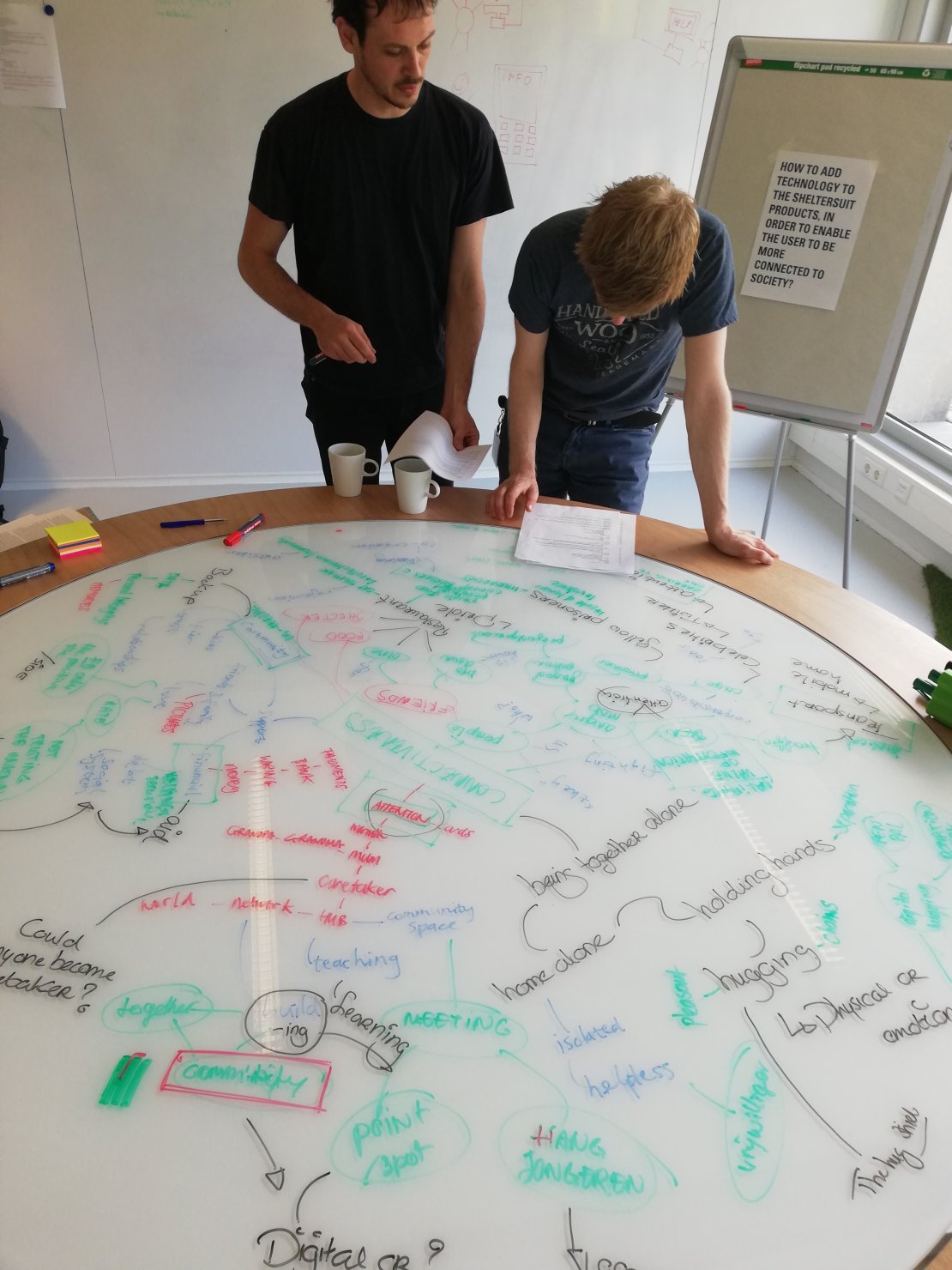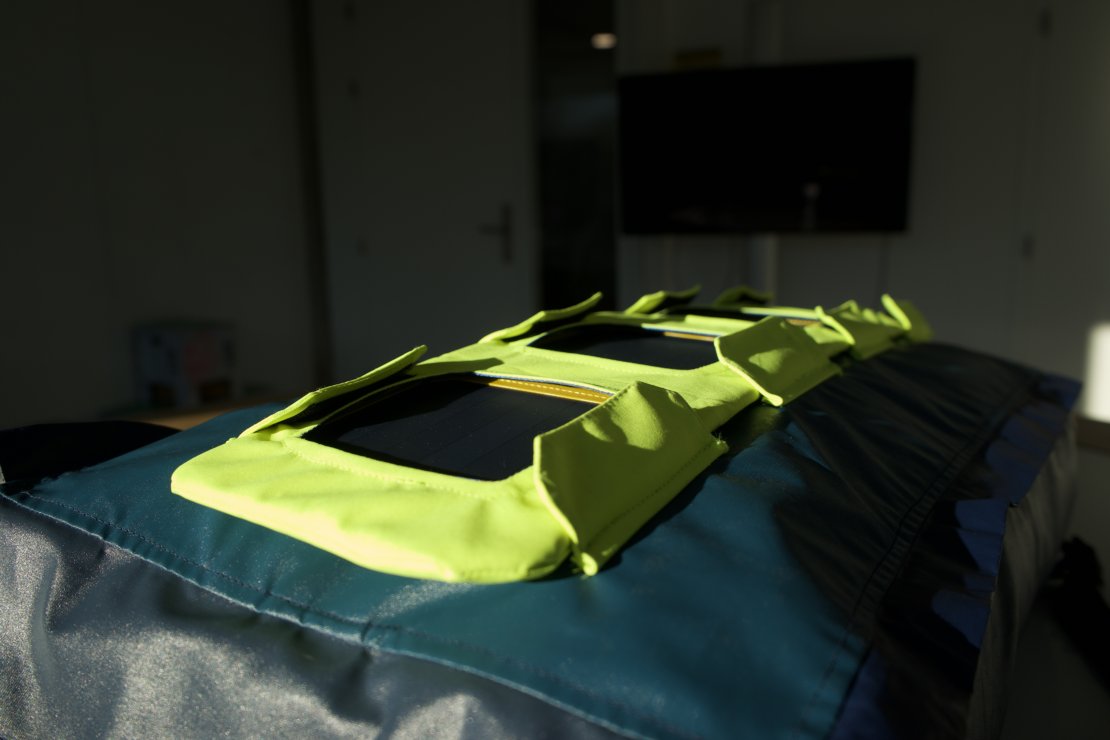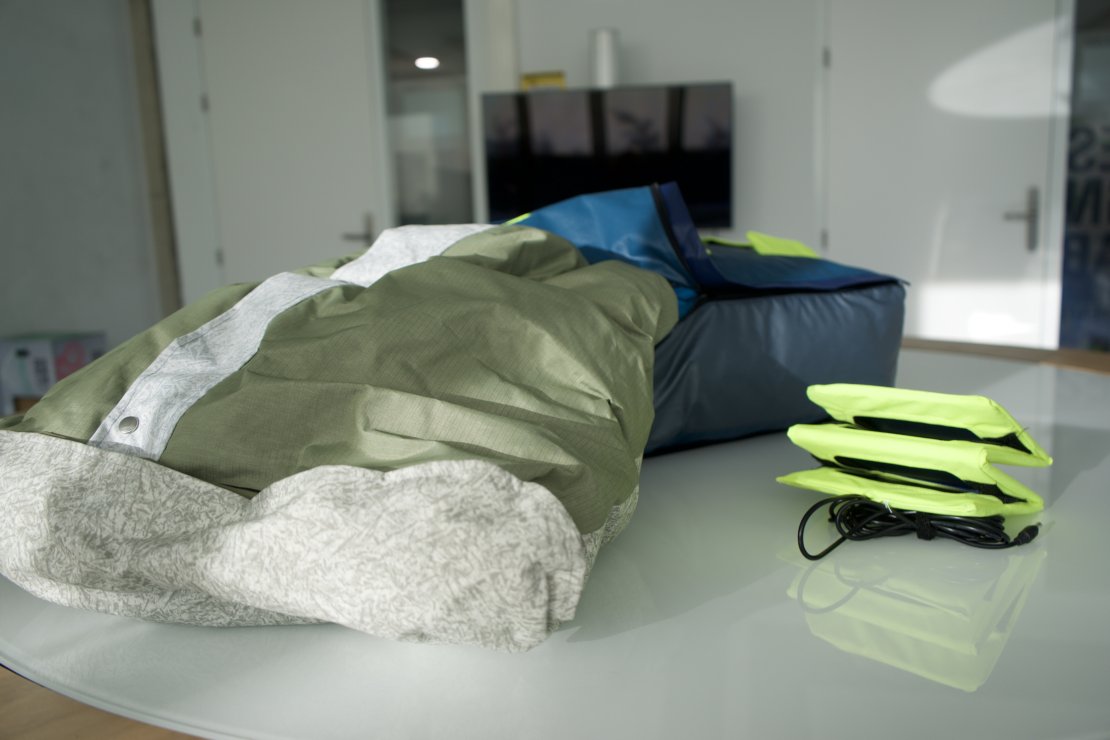Sheltersuit Foundation provides homeless individuals with shelter in the form of their wind and water-resistant jackets, which also function as sleeping bags. In this project, DesignLab partnered up with Sheltersuit to explore the potential use of technology in the suit.
The partnership was formed when WEAR sustain announced a second round of funding available under the EU-Horizon2020 project. WEAR sustain sought to bring together artists, engineers and designers in pan-EU projects to create the wearables of the future, while considering ethical and sustainability implications. For DesignLab, Sheltersuit was always a compelling organization because of the social good they were creating. So to get to work with them in a project was an amazing opportunity.

Our project focused on two areas: connectivity and preventing hypothermia. Those who are homeless often have to face extreme weather conditions while sleeping on the streets. In the winter, this brings them into risk of hypothermia, where body heat is lost faster than it is produced. Additionally, many homeless individuals do use smartphones which is contrary to popular belief. One issue they face is the inability to charge their smartphones, which can leave them disconnected from friends and family. To address these issues, we wanted to create an Urban Safety Kit, by integrating smart technology in the existing Sheltersuit product line.
We started with a huge ambition, and after consulting the MST Hospital in Enschede, realized that sensing hypothermia is a difficult process. We initially used a vibration sensor to try to detect known frequencies of shivering, but other issues such as a loose fit with the suit and knowing with high confidence whether the shivering is indeed hypothermia led us to leave that aspect out of the final prototype. Instead, we focused on the connectivity aspect, where we designed a bag with integrated solar panels. Inside the bag was a power bank which the person could then connect to their smartphone with a USB cable to charge it. The power bank had an indicator light to show how much capacity was charged or not.


We made three prototypes of the Shelterbag and shipped it off to Barcelona, where we partnered up with a living lab called Citilab. Citilab ran user experience tests with the prototypes where they handed it to several homeless individuals who volunteered to use it for a week and were willing to give feedback on their experience. This was the final deliverable of this project, even though we would have loved to continue if it were not for budget and time constraints.
We also showcased the Urban Safety Kit at Dutch Design Week in 2018, where we got to have many interesting discussions with visitors and were even nominated for the social design award!

Sheltersuit Foundation continues to make suits for the homeless – if you’d like to see what they are up to, do consider visiting their website where you can also donate to their cause!
Project Team
Jurrie Barkel (Sheltersuit Foundation)
David Claassen
Stefan Paun
Olaf van der Meer
Koen Raben
Dirk Wanders
Edo de Wolf
Shasho (Sheltersuit Foundation)





